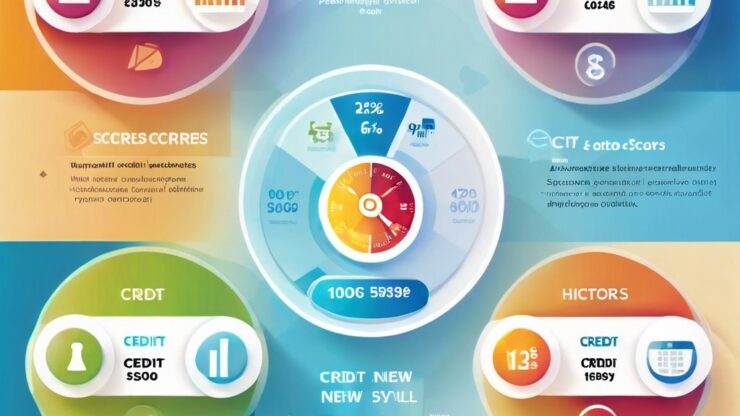Decoding the Credit Score Puzzle
Your credit score is a crucial number that influences your financial life. It’s not just a random figure; it encapsulates your creditworthiness based on several factors. By understanding how credit scores are calculated, you can take proactive steps to improve your score and, in turn, your financial opportunities. In this article, we delve into the five key factors that determine your credit score, providing you with valuable insights to navigate the credit landscape.
1. Payment History: The Cornerstone of Your Credit Profile
The most significant factor in your credit score is your payment history. Lenders want to know if you have a track record of paying your bills on time. A single missed payment can have a substantial negative impact on your score. Conversely, a consistent record of timely payments can elevate your creditworthiness. Understanding this can help you prioritize your financial obligations and avoid late payments.
- On-time payments: Boosts your score significantly.
- Missed or late payments: Can stay on your report for up to seven years.
- Bankruptcy: A serious event that can severely damage your score.
2. Credit Utilization: The Balance Between Credit and Debt
Your credit utilization ratio is the second most important factor, representing the amount of credit you are using compared to your total available credit. Ideally, you should aim to keep this ratio below 30%. High credit utilization can signal to lenders that you might be over-reliant on credit, which could pose a risk. Monitoring your spending habits and keeping your balances low is vital for maintaining a healthy credit score.
| Credit Utilization Ratio | Impact on Score |
|---|---|
| Under 30% | Positive |
| 30% – 50% | Neutral |
| Above 50% | Negative |
3. Length of Credit History: The Importance of Time
The length of your credit history accounts for about 15% of your credit score. Lenders prefer to see a longer credit history as it provides a clearer picture of your financial behavior over time. If you are new to credit, consider keeping older accounts open, even if you don’t use them frequently. This can help improve your average account age and enhance your score.
Disclaimer
This article has been created or edited with the support of artificial intelligence and is for informational purposes only. The information provided should not be considered investment advice. Please seek the support of a professional advisor before making any investment decisions.






